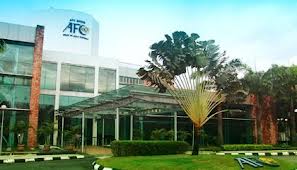By John Duerden in Kuala Lumpur
May 1 – The talking will shortly be over, the daggers are drawn and the tension is as thick as the cigarette smoke filling the lobby of the Mandarin Oriental hotel in the Malaysian capital.
The verbal warfare that has plagued the build-up to elect the next President of the Asian Football Confederation comes to a head on Thursday morning when Yousuf Al Serkal of the UAE goes up against Sheikh Salman bin Ebrahim Al-Khalifa of Bahrain and Worawi Makudi of Thailand for the right to lead Asian football for the next 18 months.
In the final few hours of lobbying in what has been a campaign high on bitterness and low on transparency, all three candidates were making last-ditch bids to win over floating voters, with the ASEAN region as well as Central and South Asia emerging as key battlegrounds.
It is lobbying at its most literal. The lobby of the plush hotel has become an unofficial campaign headquarters for the two main rivals – Salman and Al-Serkal – and their respective teams while Hafiz Al Medlej of Saudi Arabia, who was the rank outsider, officially withdrew on Wednesday as expected.
Such are the ludicrous sensitivities that accompany such votes that on Monday, the Bahraini camp complained to hotel staff upon realising that the reserved signs on their table were slightly smaller than those on the UAE side of the room.
For their part the UAE are confident that Al Serkal, the AFC vice-president who made intermittent appearances throughout the final day of campaigning dressed in jacket and jeans, has the backing of the majority of West Asia and believe only Bahrain and Kuwait will vote for Salman. That is probably being over-optimistic though it expected that Al Medlej will support Al Serkal, a potentially pivotal move.
There has been much debate on the voting intentions of Prince Ali bin Al Hussein, vice-president of FIFA and head of the West Asian Football Federation who has been distancing himself from the media frenzy. Head of the Jordanian FA, Prince Ali has a close relationship with Al Serkal but is ultimately expected to support Salman as the candidate with the greatest chance of bringing reform to the embattled confederation.
At the opposite end of the continent East Asia’s nine members – including China, Japan and both Koreas – opted unanimously Wednesday to vote for Salman, a huge boost to the Bahraini who has had to fend off constant allegations of human rights violations in his country. Had Jilong Zhang, the Chinese official who ran the AFC for two years on an interim basis, decided to stand, the voting pattern would doubtless have been different. Why isn’t he standing?
Support for Salman from the east may have a lot to do with number of countries, including China, having close links with the Olympic Council of Asia which has been openly encouraging delegates to vote for their man. OCA’s Kuwaiti president Sheikh Ahmad Al-Fahad Al-Sabah visited the region in mid-April and met a number of influential figures. Salman also established links in South Korea, Japan and China in the 2009 election for a seat on the FIFA Executive Committee when he narrowly lost out to Mohamed bin Hammam. There was some late hope in the Al Serkal camp that China could be persuaded to switch sides but it won’t happen. The OCA has been repeatedly accused by Al-Serkal of interfering in the election but Sheikh Ahmad, flanked by a bodyguard, denied the charges when asked by Inside World Football.
That leaves the south-east ASEAN region and Central Asia. Despite Makudi’s recent claims that he has the backing of all 11 members of Asean as well as Australia, sources have told Inside World Football that support for him is crumbling. The question is where will it go? Australia is voting for Salman who met with a number of south-eastern member associations on Wednesday, but Al Serkal hinted to this website that he could do a deal with Makudi in later rounds of voting. “I believe that in ASEAN I am doing well,” Al Serkal said. “There’s no direct agreement but myself and Worawi, we have a good relationship and I believe that if he does not pull through the first round, he will support me in the second round.”
South Asia is leaning towards Salman who has spoken out on Indian football issues on a number of occasions and has convinced officials on the sub-continent that he is the right man to foster development of the beautiful game in the region.
Uzbekistan, Turkmenistan, Kyrgyzstan and Tajikistan – a quartet often overlooked in Asian football – could end up holding the key. A senior official in the Uzbek FA told Inside World Football that they will make a final decision just before the vote. They are apparently holding out to see which candidate has most to offer.
In the other separate election, Hassan Al-Thawadi of Qatar is running against Sheikh Salman for a place on FIFA’s Executive Committee, potentially an even more important ballot since it is for a four-year term rather than just two and, as Al-Thawadi stressed in an interview with InsideWorldFootball (http://www.insideworldfootball.com/andrew-warshaw/12444-andrew-warshaw-interviews-hasan-al-thawadi-on-his-bid-for-fifa-s-executive-committee), is the most important forum for keeping Asian football – and the World Cup, for that matter – on the agenda within FIFA’s inner sanctum.
A large delegation from Qatar is in situ but with refreshing honesty, the campaign team admits it just doesn’t know if Al-Thawadi, General Secretary of Qatar’s 2022 World Cup Supreme Committee, has enough votes or not. “There are just too many variables and nobody really knows what is going to happen,” said one official.
Contact the writer of this story at moc.l1745274941labto1745274941ofdlr1745274941owedi1745274941sni@n1745274941edreu1745274941d.nho1745274941j1745274941


